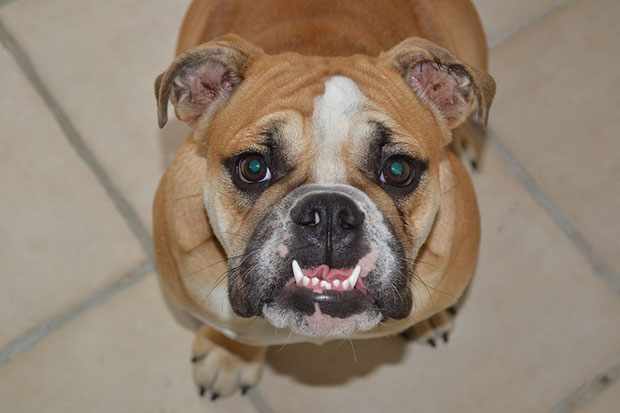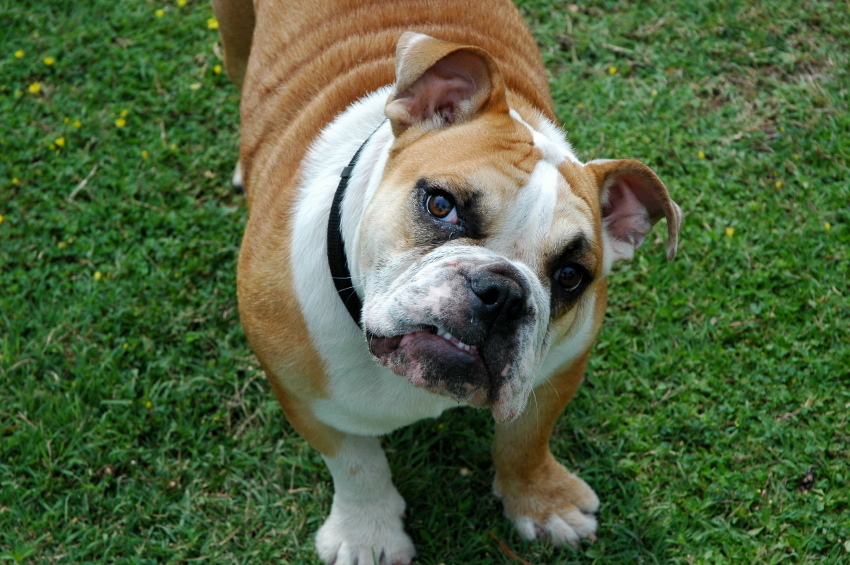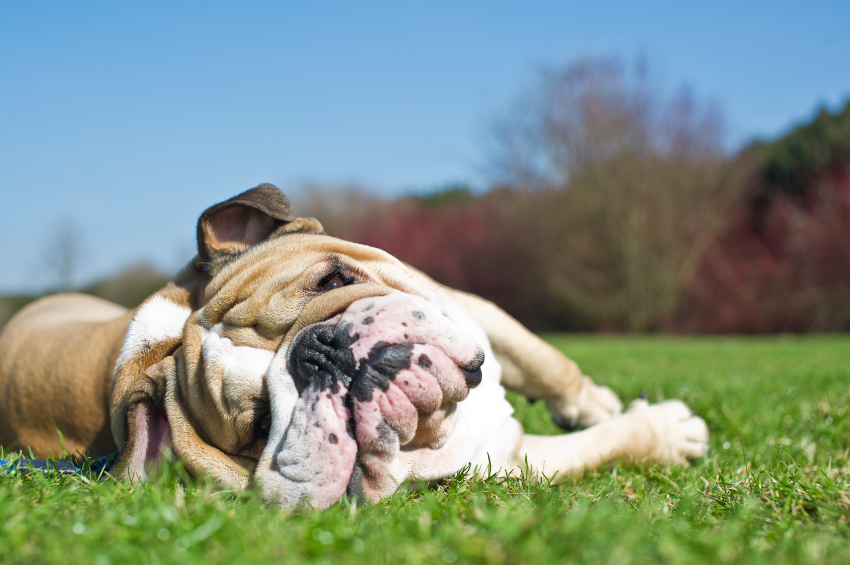What should you do if your Bulldog has diarrhea? There are different reasons why dogs suffer diarrhea. Diarrhea in dogs can happen due to a number of reasons including consumption of strange items, bacterial or viral infections, poisoning, or serious diseases.

A loose and watery stool is what we call a diarrhea. When a dog suffers from it, it means something wrong is going on inside his tummy. The watery stool your Bulldog pushes out may or may not come with worms, blood, undigested food or materials, or unusual objects.
A Bulldog suffering from diarrhea may show other signs like straining to poop, frequency in pooping, excessive farting, “accidents”, tummy pain, and cramping.
Read: Training Your Bulldog Puppy To Pee Outside
A dog’s colon normally works to remove excess water in the digested material – helping the stool become firm and well formed. When something troubles the tummy or the GI tract, the colon brings water into it to flush the irritant out and this leads to the liquefying and/or softening of the stool.
Types of Diarrhea
Do note that there are two types of diarrhea: acute diarrhea and persistent diarrhea. Acute diarrhea is what happens when your Bulldog has temporary diarrhea that is caused by bacteria, viruses, unpleasant food, or ingested foreign object. Persistent diarrhea is caused by serious health conditions like Irritable Bowel Syndrome (IBS), Crohn’s disease and more.
Possible Causes of Diarrhea in Dogs
From simple tummy upsets to serious health conditions, here’s a list of possible reasons your Bulldog may experience diarrhea:
- Eating of spoiled food, garbage, or inedible objects,
- Auto-immune diseases,
- Addison’s disease,
- Stress,
- Pancreatic disease,
- Kidney or liver problems,
- Sudden diet change,
- Eating at a very fast rate,
- Sensitive tummy,
- Parasites,
- Obstruction in the GI tract,
- Bacterial infections or disease like Ehlichiosis and more,
- Viral infections or diseases such as Parvo, Distemper, and more,
- Fungal infection,
- Poisoning,
- And a lot more.
Diarrhea as an Emergency?
While Bulldogs may experience diarrhea for simple reasons, it’s a good idea to watch out for other unusual signs he will show. Since diarrhea can be a sign of some fatal diseases, make it a habit to check the texture and appearance of the stool. It is considered an emergency if your Bulldog has diarrhea that is accompanied by the following symptoms:
- Bloody or black stool,
- If the stool smells rotten,
- Enlarged tummy,
- Lethargy,
- Vomiting,
- Presence of worms in the poop,
- Depression,
- Diarrhea that persists for more than 48 hours,
- And green pus from the nose, eyes, or genitals.
If your Bulldog has diarrhea and is showing any of the symptoms mentioned above, then it is a good idea to take him to the vet.
Diarrhea in Simple Stomach Upsets
If your Bulldog has diarrhea but is not showing any other symptoms, then he may only be experiencing a simple stomach upset. But it is very important to observe him. You may also follow this first aid protocol for dogs with diarrhea.
- Do not feed your Bulldog for 12 to 24 hours.
- Give him adequate water to keep him hydrated.
- Give him electrolytes ice cubes that made from frozen dextrose powder-water solution or Pedialyte.
After fasting, your Bulldog can now proceed to feed him canned wet dog food or recovery dog food. Feeding him pumpkin and chicken broth should help relieve his upset stomach and firm up his stool too. Give your Bulldog either of these foods twice a day for 1 to 2 days after the fasting period. Your Bulldog can go back to his normal diet after this regimen.
But if the diarrhea persists, it’s best to have your Bulldog checked by a veterinarian.

